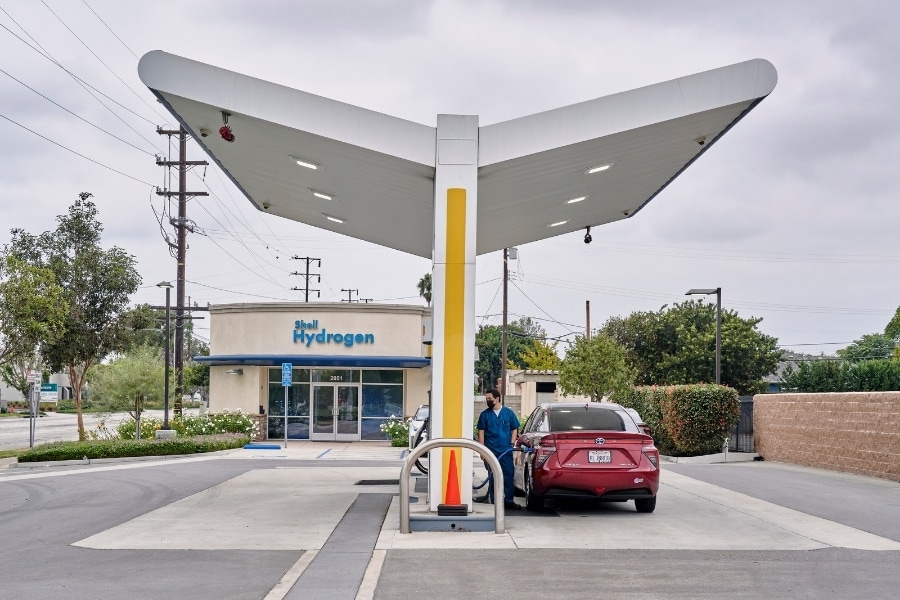
Toyota led on clean cars. Now critics say it works to delay them
Toyota currently does not sell any electric vehicles in major markets outside China, but it said in April that it plans to sell 15 battery-electric models globally by 2025, part of a wider lineup of 70 battery-electric, hybrid and hydrogen fuel cell vehicles to offer "diverse choices" to buyers
 A person fuels their Toyota Mirai at a hydrogen fuel pump in Torrance, Calif., Oct. 22, 2020. The lack of refueling infrastructure for hydrogen vehicles, along with the cars’ high prices, has held them back. (Philip Cheung/The New York Times)
A person fuels their Toyota Mirai at a hydrogen fuel pump in Torrance, Calif., Oct. 22, 2020. The lack of refueling infrastructure for hydrogen vehicles, along with the cars’ high prices, has held them back. (Philip Cheung/The New York Times)
The Toyota Prius hybrid was a milestone in the history of clean cars, attracting millions of buyers worldwide who could do their part for the environment while saving money on gasoline.
But in recent months, Toyota, one of the world’s largest automakers, has quietly become the industry’s strongest voice opposing an all-out transition to electric vehicles — which proponents say is critical to fighting climate change.
Last month, Chris Reynolds, a senior executive who oversees government affairs for the company, traveled to Washington for closed-door meetings with congressional staff members and outlined Toyota’s opposition to an aggressive transition to all-electric cars. He argued that gas-electric hybrids such as the Prius and hydrogen-powered cars should play a bigger role, according to four people familiar with the talks.
Behind that position is a business quandary: Even as other automakers have embraced electric cars, Toyota bet its future on the development of hydrogen fuel cells — a costlier technology that has fallen far behind electric batteries — with greater use of hybrids in the near term. That means a rapid shift from gasoline to electric on the roads could be devastating for the company’s market share and bottom line.
The recent push in Washington follows Toyota’s worldwide efforts — in markets including the United States, the United Kingdom, the European Union and Australia — to oppose stricter car-emissions standards or fight electric vehicle mandates. For example, executives at Toyota’s Indian subsidiary publicly criticized India’s target for 100% electric vehicle sales by 2030, saying it was not practical.
©2019 New York Times News Service







